
The Business of Fashion
Agenda-setting intelligence, analysis and advice for the global fashion community.

Agenda-setting intelligence, analysis and advice for the global fashion community.
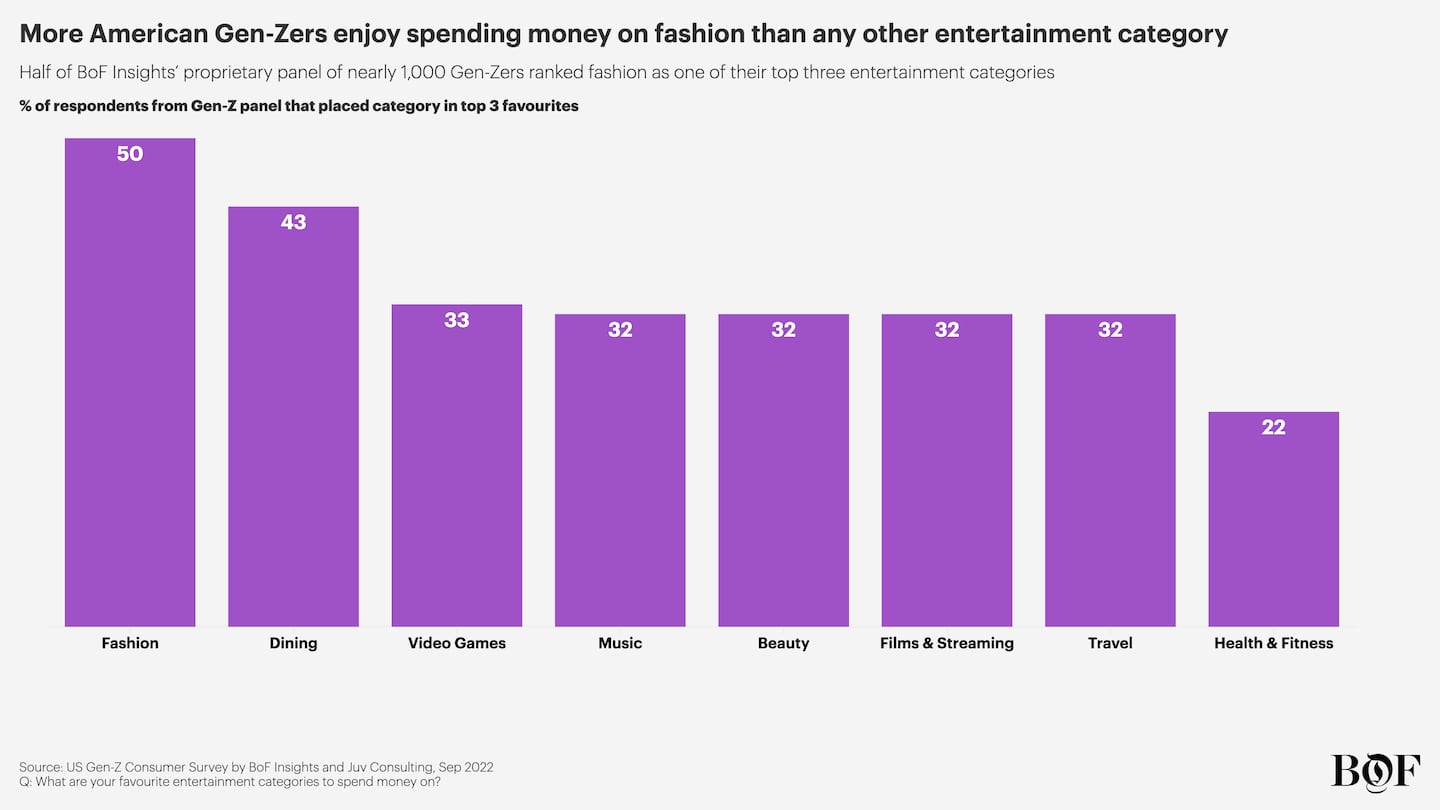
All businesses must learn to navigate the cultural and technological shifts ushered in by young consumers, but this is particularly important for the fashion industry because it is predicated on style and novelty. Gen-Zers — the first true digital natives — range from ages 12 to 25 and are now coming into their own.
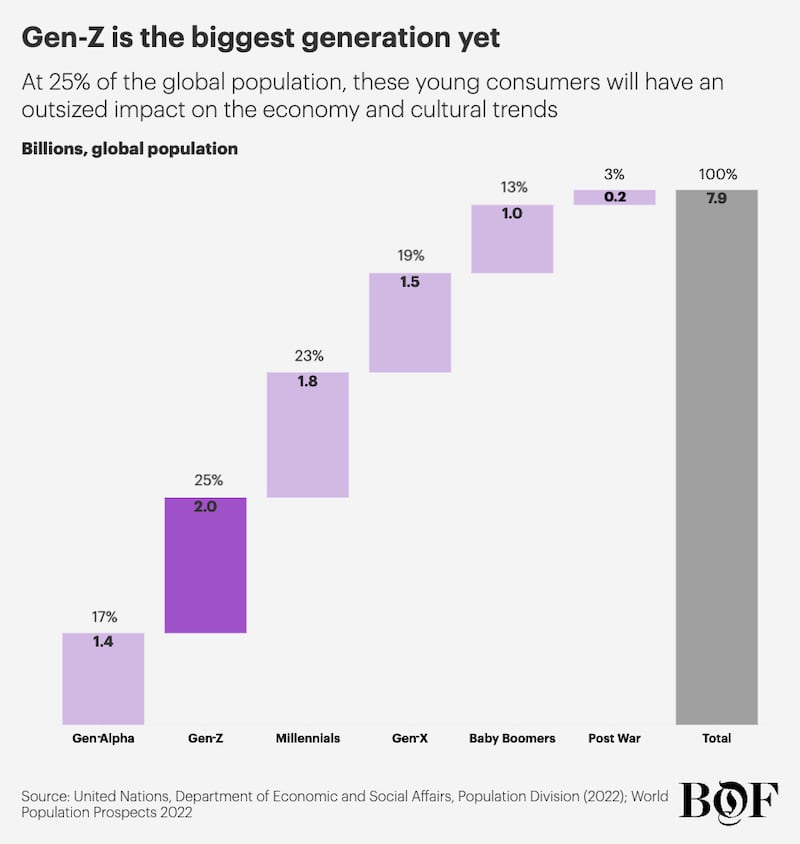
Having mastered social media platforms at an early age, this generation is adept at producing and consuming fashion content, doing so at a faster pace than any generation before. This inverts the design process where styles are now percolating bottom-up rather than being pushed down from the traditional gatekeepers, while also accelerating trend creation. This digital savviness manifests in the way Gen-Z discovers, purchases, and even disposes of fashion. As a result, this generation has the power to reshape all the points in the consumer journey as they mature and gain purchasing power.
Brands and retailers must take note of this generation’s intricacies in order to thrive. BoF Insights’ latest report Gen-Z and Fashion in the Age of Realism focuses on the US, where Gen-Z has an estimated disposable income of $360 billion.
Below is a look at what the fashion industry needs to know to craft a winning, long-term strategy with Gen-Z.
ADVERTISEMENT
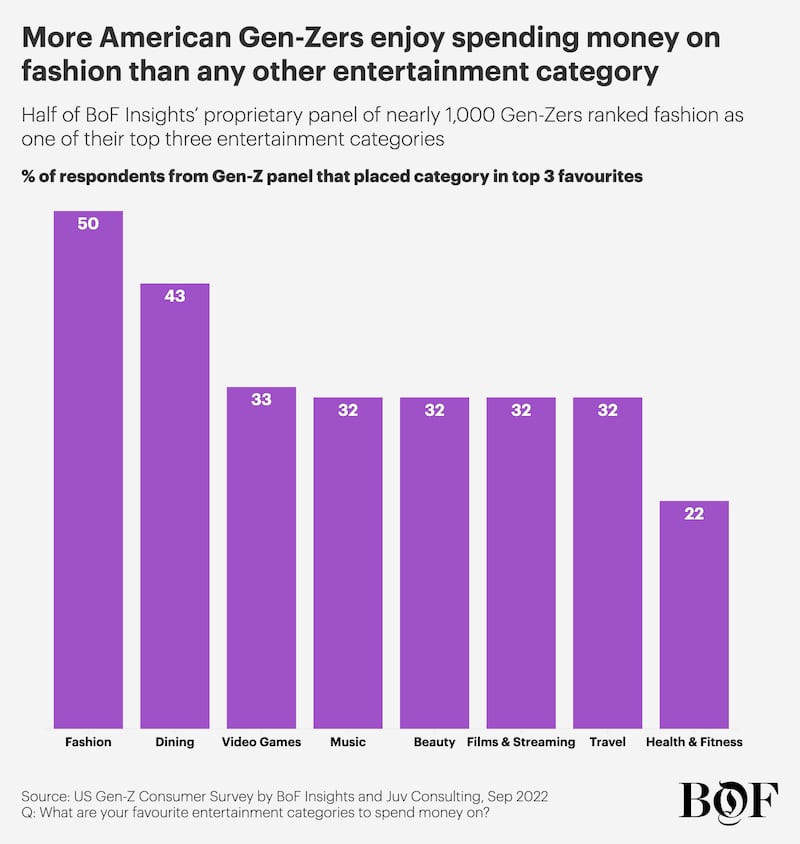
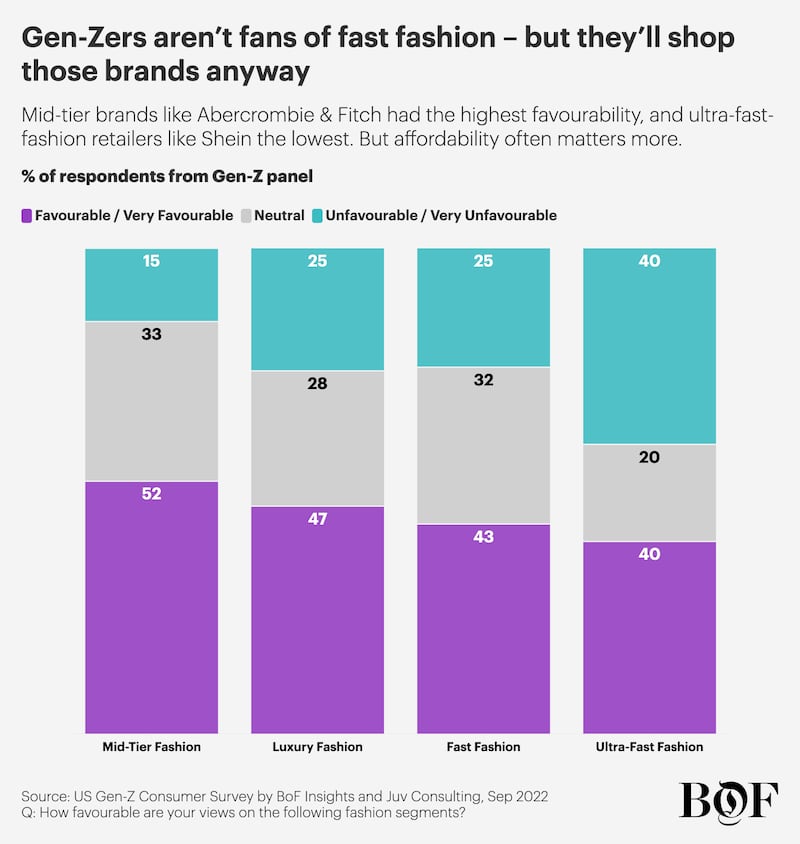
The vast majority of Gen-Zers find fashion inspiration through social media platforms, especially TikTok with its personalised #ForYou pages. Nonetheless, the next step — in terms of converting those young consumers — is arguably more important. In this case, Instagram still comes out slightly ahead in terms of providing the information needed to pull the trigger. Meanwhile, Snapchat and Facebook lag with BoF Insights’ panel despite their investments in social commerce features, including AR try-on and integrated shops, respectively.
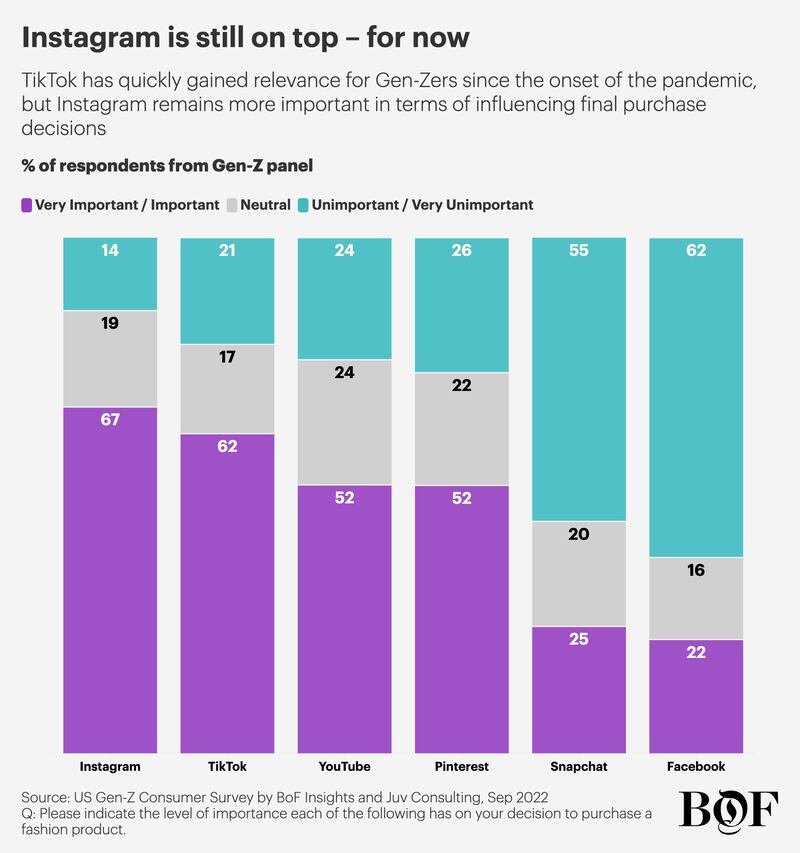
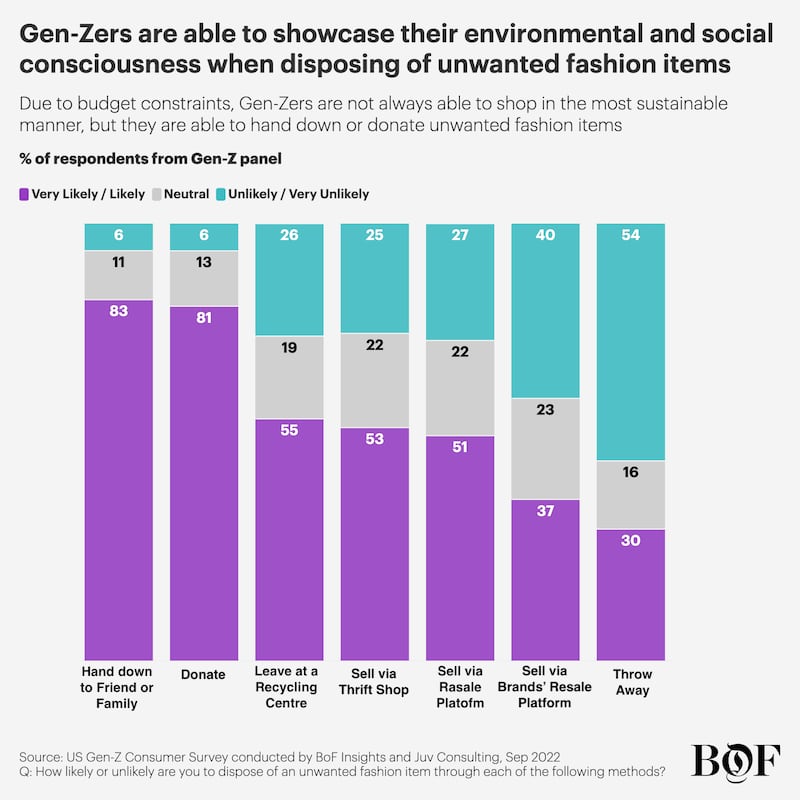
BoF Insights is The Business of Fashion’s data and advisory team, partnering with leading fashion and beauty clients to help them grow their brands and businesses. Get in touch at insights@businessoffashion.com to understand how BoF Insights support your company’s growth for the long term.
Find out what makes Gen-Zers so unique and crucial to the fashion industry in the latest BoF Insights report. Co-created with Gen-Zers as well as a host of fashion and social media experts, we unpack what this generation expects from fashion today, and tomorrow.

Benjamin Schneider is the Senior Research Lead at the Business of Fashion (BoF). He is based in New York City as part of BoF’s Insights team, which arms fashion and luxury executives with proprietary business intelligence.

Diana Lee is the Director of Research & Analysis at The Business of Fashion. She is based in London and oversees the content strategy and roadmap for BoF Insights.
As the German sportswear giant taps surging demand for its Samba and Gazelle sneakers, it’s also taking steps to spread its bets ahead of peak interest.
A profitable, multi-trillion dollar fashion industry populated with brands that generate minimal economic and environmental waste is within our reach, argues Lawrence Lenihan.
RFID technology has made self-checkout far more efficient than traditional scanning kiosks at retailers like Zara and Uniqlo, but the industry at large hesitates to fully embrace the innovation over concerns of theft and customer engagement.
The company has continued to struggle with growing “at scale” and issued a warning in February that revenue may not start increasing again until the fourth quarter.